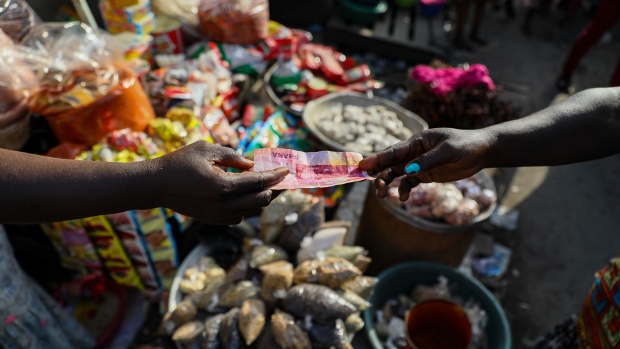The Bank of Ghana (BoG) has updated its year-end inflation target to 18%, highlighting potential risks from geopolitical developments.
This new target marks a substantial improvement from the 23.2% recorded at the end of 2023 and a dramatic drop from 54.1% a year prior.
During a recent joint press briefing with the International Monetary Fund (IMF) and the Ministry of Finance, Governor Dr. Ernest Addison announced the Bank of Ghana’s revised year-end inflation target of 18%.
This adjustment follows the successful completion of the IMF’s third review under the country’s Extended Credit Facility (ECF) program.
Dr. Addison acknowledged the potential risks impacting the inflation outlook, noting, “Our projections suggest a target range of 13-15%, but we may slightly exceed our earlier estimate of 17%, now aiming for 18% by year-end.”
This revision reflects a change from previous optimism expressed after the September 2023 Monetary Policy Committee (MPC) meeting, where a two percent rate cut was enacted following six months of consistent disinflation.
However, an unexpected increase in inflation to 21.5% in September 2024—up from 20.4% in August—has raised questions about the timeliness of the BoG’s earlier decisions.
Despite this, Governor Addison defended the MPC’s actions, stating, “We stand by our decision to lower the policy rate by 200 basis points, as we’ve seen significant improvements in economic indicators, inflation control, and reserve management.”
The BoG’s revised target remains more optimistic than some private sector forecasts. DataBank, a prominent financial services firm, predicted inflation could reach as high as 23.5% by year-end due to fuel price volatility and currency depreciation.
They expect inflation to settle around 21.5% ± 200 bps, citing external factors as influential.
Their most favourable scenario places year-end inflation at 19.5%, still above the central bank’s new target.
Despite the upward revision, Dr. Addison emphasized that the BoG’s policy stance remains robust, with a real policy rate of 27% relative to the current inflation rate of 21.5%.
Market observers are concerned about the inflation outlook, especially given uncertainties around the cedi’s value against major currencies, driven by challenges faced by the Cocoa Board in securing its annual syndicated loan.
However, the BoG is confident in its reserve accumulation efforts.
Rising food and fuel prices due to drought and geopolitical conflicts could further strain inflation and currency stability.
Nonetheless, anticipated inflows from development partners—like the $360 million from the IMF and an improved trade surplus—are expected to help stabilize the currency and mitigate inflationary pressures as the high-demand holiday season approaches.
The Bank of Ghana (BoG) is confident in its ability to reach its medium-term inflation target of 6-10% by the end of 2025, provided there are no unforeseen shocks.
















